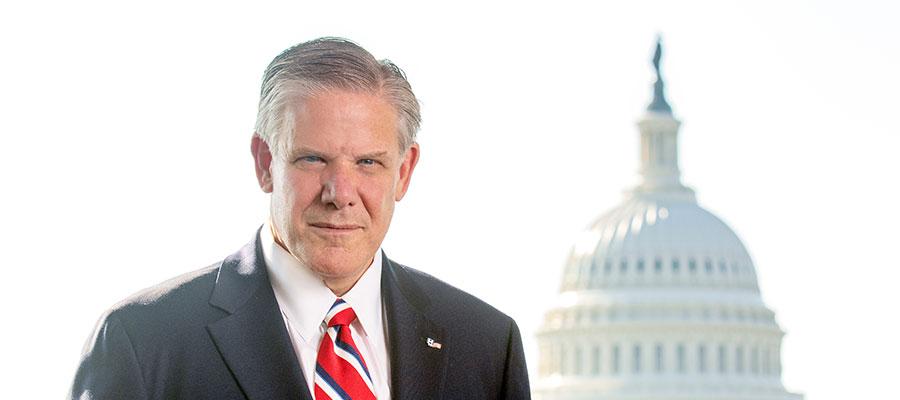Perspective: Lifted by Words of Hope and Unity, Let’s Move Forward

“We have much to do, much to repair, much to restore, much to heal, much to build … and much to gain.”
President Biden focused on healing and unity in his inaugural address and made clear that divisive politics need to take a back seat to the many challenges confronting our nation.
He got to work immediately, signing executive orders that set the scene for a very ambitious first 100 days in office. And we share his top priority – putting an end to the COVID-19 pandemic.
In particular, AHA applauds the president’s directive to tap the powers of the Defense Production Act to meet shortfalls in equipment and supplies needed for the COVID-19 response, helping to protect our health care heroes. We are also pleased to see an executive order establishing a new COVID-19 Health Equity Task Force to focus on inequities in COVID-19 outcomes by race, ethnicity, geography, disability and other considerations.
Messaging matters, especially coming from the nation’s chief executive. So it was nice to see the incoming administration make a point of praising the unmatched contributions of our health care workers … the brave men and women who have literally helped save our country.
Last week, the incoming administration released an outline of a $1.9 trillion COVID-19 relief proposal that, among other provisions, would provide additional resources for vaccines, personal protective equipment and workforce development. The plan makes important strides in providing increased federal leadership, support and resources to combat the virus, and we look forward to working with the administration and Congress on legislation that will provide additional assistance to hospitals and our heroic caregivers.
At the same time, we are encouraged by the president’s focus on expediting the distribution of COVID-19 vaccines. Hospitals and health systems are working around the clock to administer vaccines as quickly as possible, but to reach the scale our country needs for herd immunity, we need additional assets and other stakeholders to join us.
We have urged the administration to quarterback this massive undertaking – from manufacturing to putting shots in arms.
Enhanced federal leadership can help set clear goals and expectations, track progress and coordinate the consistent flow of the supply chain with greater transparency. It means more people and more assets to provide vaccinations on a massive scale.
The reality: According to the experts, getting to herd immunity by Labor Day will require that we vaccinate two million people per day. That’s nearly twice the pace of 100 million shots in the first one hundred days.
As pillars of trust and islands of stability for so many communities, hospitals and health systems remain fully committed partners on efforts to fight the battle against COVID-19 … as we have been all along.
On Tuesday evening, buildings and monuments in Washington, D.C., and across the country blazed with light in memory of the 400,000-plus Americans who have died from COVID-19.
It was an appropriate reminder of the tenacity of the virus that has devastated so many families and communities. And it underscored once again that we need to do everything we can – as individuals, communities and a nation – to defeat COVID-19 once and for all.

